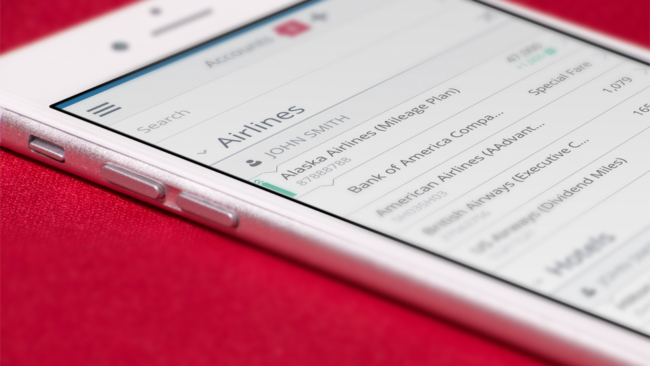Why you should use AwardWallet to track your frequent flyer miles and hotel loyalty points
Links on Head for Points may pay us an affiliate commission. A list of partners is here.
There is only one miles and points tool that I use every day – and have done for a number of years – and that is AwardWallet.
It turns out, however, that I haven’t done a single article in 2020 which talked about AwardWallet. With a few days of the year left, I want to remedy that.
AwardWallet allows you to store the log-in and password details for pretty much all of the loyalty programmes you are in. It isn’t just travel, either – Nectar, Boots Advantage, Tesco Clubcard, Harrods Rewards …. they cover over 700 programmes from across the world.
Across their entire membership, they are tracking over 179,000,000,000 miles and points for 661,000 users!
You can store programmes for various different people inside one AwardWallet account. When I log in, I see over over 30 different accounts across my family. A clever part of AwardWallet is the ability to sideline schemes which are dormant or rarely used.
You can sit and back and do nothing with AwardWallet if that is how you want to play it. Once a week, AwardWallet will automatically log in to each of your programmes and update your balance. It will then send you a weekly email with all of your balance changes.
For the more obsessive, like myself, you can log in to AwardWallet and simply click ‘Update’. AwardWallet goes off and updates all of your ‘active’ balances immediately (it takes 3-4 minutes to check my active ones). On a PC you can leave it running in another window. There is also an impressive app which lets you check all your miles and points balances on the move.
If you are not already a member of AwardWallet, you can sign up for free here.
What is AwardWallet Plus?
Whilst AwardWallet is free, you can pay $30 per year to upgrade to ‘Plus’ status. This comes with a number of extra benefits:
- Balances update in parallel rather than one at a time (claims a 5x increase in updating speed)
- The expiry dates of your miles are shown, based on what AW knows about the expiry rules of the programme, your status and your recent activity
- You receive email warnings if miles are heading towards expiry
- You can see historical transactions for some programmes and a graph of changes in your total balance for all programmes
- You can update your balances multiple times per day (although the free version lets you do it twice per day, which is more than enough for most people!)
A note on security
Some people, understandably, are worried about the security of their account details. (AW is owned privately by a couple of guys in the US.) If you are, you can choose to have AwardWallet store all of your log-in and password data locally on your PC, not on their server. The only impact of this is that you are limited to checking your balances on that one device.
My personal view is that using AwardWallet improves your security. When my Tesco Clubcard vouchers were stolen, it was AwardWallet that notified me. If I hadn’t seen my balance change, I may not have noticed for months. AwardWallet has been in business for 15 years now without any serious issues.
I am a big fan of AwardWallet, and if you have never used it I recommend taking a look. It doesn’t take long to set up, and once you have all your data there it becomes quite addictive checking your balances a couple of times a day. You can sign up here and there is no charge unless you decide to upgrade to Plus at some point.




 Rob
Rob 



Comments (52)